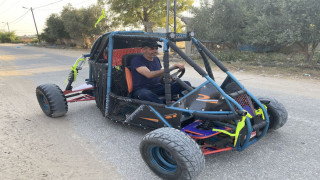WHO, Japan strengthen resilience of the Iranian health system

This initiative represents a significant stride in bolstering the diagnostic capacity and resilience of the Islamic Republic of Iran’s health system, ultimately enhancing the overall quality of patient care.
The advanced 1.5 Tesla MRI machines have been strategically placed in key referral hospitals identified by the Iranian Ministry of Health and Medical Education. The recipient hospitals are Kosar Hospital, Semnan; Hajar Hospital, Shahrekord; Pasteur Hospital, Bam; 12 Farvardin Hospital, Kahnooj; Imam Ali Hospital, Andimeshk; and Shohada Hospital, Neyriz. Within the framework of the project for strengthening capacity of health for COVID-19 crisis in the Islamic Republic of Iran, through provision of six MRI machines, more communities across the country now have access to vital medical imaging technology, removing the need for patients to travel long distances for diagnostic services.
To ensure the environmental safety and protection of the hospitals and surrounding areas, an environmental assessment was carried out. Any issues were promptly addressed, guaranteeing that the installation of the MRI machines meets the highest social and environmental standards.
Health professionals in the 6 hospitals have received comprehensive training on how to operate cutting-edge imaging devices. This training empowers medical staff to harness the full potential of the MRI machines, enabling accurate diagnoses and early detection of diseases. This newfound capability will significantly enhance patient outcomes and provide invaluable support to the Iranian health system.
“The Government of Japan’s generous contribution not only strengthens the medical imaging capabilities of the designated hospitals but also benefits the entire country by enhancing access to advanced diagnostic services. This collaborative effort between WHO Iran and the Government of Japan exemplifies the positive impact that international partnerships can have on health infrastructure,” said Dr Syed Jaffar Hussain, WHO Representative and Head of Mission to the Islamic Republic of Iran.
“We are immensely grateful for the Government of Japan’s support in enhancing the resilience of the Iranian health system,” emphasized Dr Hussain. “These MRI machines will significantly improve the Islamic Republic of Iran’s diagnostic capabilities, offering more timely and accurate health services to its people. We believe this joint WHO–Japan project will have a lasting impact on the health and well-being of vulnerable populations in the Islamic Republic of Iran, including refugees from Afghanistan who reside in deprived areas of the country.”
“Japan has supported medical situation in Iran by donating 4.3 million doses of COVID-19 vaccines when Iran was in serious need of them. Provision of medical equipment for hospitals which provide medical services to vulnerable people is another example of our cooperation. I believe that such cooperation enhances health of people of Iran,” H.E. Kazutoshi AIKAWA, Ambassador of Japan to Iran, commented.
This initiative not only represents a milestone in the evolution of the Iranian health system but also serves as a powerful example of how international collaboration can help address pressing health needs. The installation of these MRI machines marks a significant step towards improving health services and early disease detection, ultimately contributing to the regional vision of Health for All by All.
MNA
source: en.mehrnews.com





